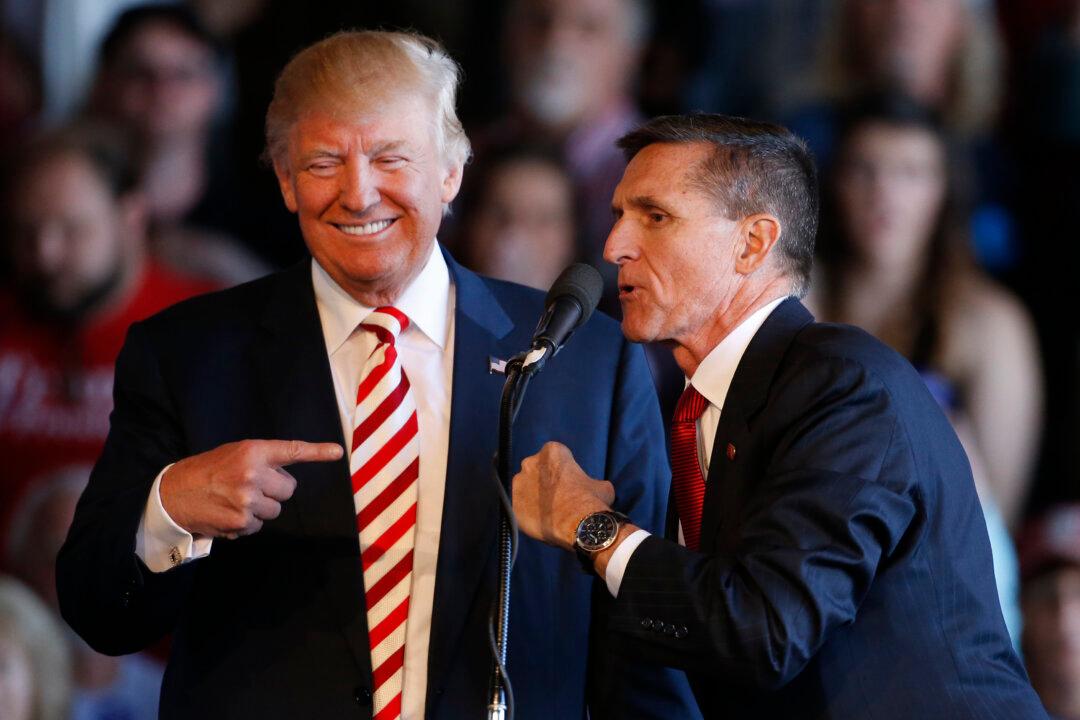President Donald Trump said he’s considering a pardon for his former national security adviser, retired Lt. Gen. Michael Flynn, while criticizing the Justice Department’s (DOJ) handling of Flynn’s case.
Flynn pleaded guilty in December 2017 to lying to the FBI. In recent months, however, he’s asked District Judge Emmet Sullivan, who presides over his case, to allow him to withdraw his plea, saying his previous lawyers provided him ineffective assistance. Flynn also has repeatedly accused the government of misconduct related to his case.





